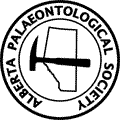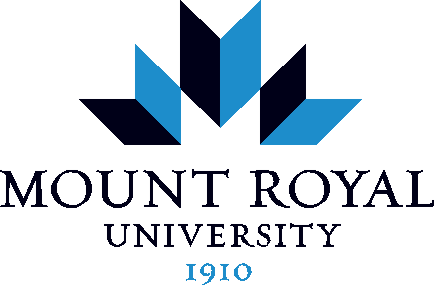Alberta Paleontological Society Symposium 2026
Paleo 2026 - APS Symposium 2026
Saturday, March 14 — Sunday, March 15, 2026
Mount Royal University, Calgary, Alberta
Planning is underway for the 29th annual Alberta Palaeontological Society Symposium! Details about the date, venue, and program will be announced as they become available.
This symposium will continue our tradition of featuring presentations from a mix of amateur and professional palaeontologists. The aim is to showcase palaeontology to the general public and to provide an opportunity for contact between the Alberta Palaeontological Society, industry, government and educational facilities.
Speaker Schedule
Paleo 2026, March 14, 2026
Jenkins Theatre, Main Building Level 1 (lower level), Mount Royal University
Call for Presentations
We are now accepting submissions for presentations and posters for Paleo 2026! If you are an avocational or professional palaeontologist with research to share, we would love to hear from you.
Submission guidelines and deadlines will be posted here as they become available. For early inquiries, please contact us at symposium@albertapaleo.org.
Workshops
We have two exciting workshops this year!
Early Vertebrate Fossil Identification and Anatomy – what does it tell us about our own evolution?
Date: Sunday, March 15, 2026
Location: Room B140, Main Building Level 1 (lower level), Mount Royal University
Time: 9:00 am – 12:00 pm
Fee: $10.00 per person (no GST charged)
Registration
Registration will open January 1, 2026. Please check back then for more details!
Presenter
Dr. Melina Jobbins, Palaeobiologist, Postdoctoral Fellow – University of Manitoba
Description
Early vertebrates consist of the first vertebrate groups to have evolved in life's history. They include fossil armoured jawless and jawed fishes, as well as bony and cartilaginous fishes that lived from the Ordovician to the end of the Devonian primarily. Together, these groups are witnesses to the early steps in vertebrate evolution, including the origin of bone, a differentiated skeleton with fins, jaws and teeth, and the transition from water to land through adaptations like lungs and limbs. All these steps were key contributors to the success of this group, allowing vertebrates to rapidly diversify their diets and feeding strategies, colonize new environments, and fill new ecological niches. By doing so, they flourished rapidly soon after their origin to, further down the line, give rise to amphibians, reptiles, birds, and mammals like us. Thus, learning about early vertebrates allows us to understand more about our own origins and early evolution.
In this workshop, participants will 1) get an introduction to the different early vertebrate groups, 2) get hands-on experience with specimens (fossils and 3D prints) and comparative material, 3) learn identification tools related to the material at hand and discuss their advantages vs limitations for both the given material and overall, 4) learn how the mode of preservation affects the amount of knowledge that can be extracted from a fossil.
Suggested items to bring
- Preferred means for taking pictures of fossils
- Microscopes may also be used so also think of your preferred means for taking pictures through a microscope lens
- Notepad and pen/pencil for taking notes and making sketches
Microvertebrate Fish Fossil Identification and Interpretation to Reconstruct Faunal and Environmental Changes
Date: Sunday, March 15, 2026
Location: Room B140, Main Building Level 1 (lower level), Mount Royal University
Time: 1:00 pm – 4:00 pm
Fee: $10.00 per person (no GST charged)
Registration
Registration will open January 1, 2026. Please check back then for more details!
Presenter
Dr. Julien Divay, Palaeoichthyologist, Hon. Research Associate – Royal Tyrrell Museum of Palaeontology
Description
Fish microvertebrate fossils—including teeth, scales, and bone fragments—are valuable tools in palaeontological and geological research that are often abundant in sedimentary basins. They represent the best evidence of the past diversity of local faunas, enabling us to reconstruct aquatic ecosystems, time turnover events, track evolutionary changes, and time phylogenetic divergences in fish lineages. Their abundance and diversity also make them excellent sources of palaeobiogeographic information, useful for determining hydrological connections between drainage basins and for dating dispersal events. Additionally, local fish diversities can indicate past environmental conditions such as water temperature, salinity, and habitat type. Thus, fish microvertebrate fossils provide crucial insights into palaeoecology, palaeoclimate, and the geological history of aquatic environments.
In this workshop, participants will 1) get hands-on experience with specimens and comparative material, 2) learn and discuss identification features and techniques as well as the particular challenges represented by working with this material, 3) learn field and lab methods used to collect and prepare this material, 4) learn how to document morphologies appropriately, 5) learn methods used to interpret and compare assemblages, and 6) learn about future potential avenues for this research.
Suggested items to bring
- Microvertebrate fossil-sorting equipment – e.g., picks, tweezers, fine paint brushes, etc. However, tweezers can be provided for you, if desired.
- Note pad and pen for taking notes/making sketches.
- Your favourite means of taking pictures of specimens through a microscope lens.
Registration
Registration details will be announced closer to the symposium date. As with previous years, the event will be free and open to the public, with both in-person and virtual attendance options.
Stay tuned to our website and newsletter for updates on registration opening dates and procedures.
Previous Symposia
While you wait for Paleo 2026, you can catch up on previous years:
- Paleo 2025 - Mount Royal University, Calgary
- Paleo 2024 - YouTube Playlist
- Paleo 2023 - YouTube Playlist
Thanks to everyone, especially the speakers, who make these events possible!
Stay Updated
For the latest information about Paleo 2026, including announcements about dates, venues, and call for papers, please:
- Check back on this page regularly
- Follow us on social media
- Attend our monthly meetings


